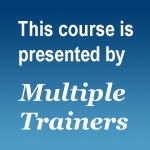

Search Results: relationships
-
One way of simplifying decision-making in relationships is clarity about the level of contact and connection you want with the people you interact with. This means knowing what you want and don’t want to share, the kinds of activities you do and don’t do together, how often, etc. This can help you chose how to best support your needs in that context, and help you to remember to set life-serving boundaries when you need them.
-
Sometimes we want to avoid placing our love and trust in someone, to protect our hearts and our life energies. And so there are deeper questions that we can use to check whether we're in relationship with someone who doesn't have capacity to be in relationship with us (eg. “Do I have a sense of mattering in this relationship?”). Read on for more questions we use to assess our empathy and efforts in relationships.
-
Trainer tip: If you are in a relationship (whether personal or work related) that you are not happy with, consider talking to the other person in an effort to connect about both your needs. Talking about it doesn’t guarantee that you will like the resolution, but not talking about it guarantees continued unhappiness. Read on for more.
-
- Learn the essentials of NVC from its founder, Dr. Marshall Rosenberg
- Discover how to connect with others with empathy, integrity, and peace
- Understand the origins of NVC and how to apply it within yourself and in your life
- Experience how empathy supports healing in your most intimate relationships— and in the world at large!
-
Could our "need for autonomy" be getting in the way of "partnership consciousness" (as NVC is sometimes called). Could "autonomy" also block healthy relationships with not only ourselves and with others, but also with the planet? This article invites us to consider how "autonomy" may colour our NVC practice at the peril of our critical values. Values such as our care for impact, shared responsibility, interdependence, compassion, consideration, and more...
-
Discover how to transform your life by aligning your actions with what matters most to you. In David Weinstock's 4-session course, you'll learn essential skills like managing moods, making values-driven decisions, and building stronger relationships using NVC and somatic techniques. Whether you're new to NVC or an experienced practitioner, these simple yet powerful practices will help you bridge divides, release anxiety, and live with grounded compassion.
-
Trainer Tip: Knowing the difference between what we need and what we want someone else to do about that need can have a profound impact on our relationships and our happiness.
-
Ask the Trainer: Feeling frustrated & angry over simple things? Find the root of your hidden needs.
-
This 4 session telecourse recording offers practices while exploring the relationship between the core elements of NVC and universal spiritual principles.
-
-
In this dynamic 4 session telecourse recording, Kelly Bryson provides practical skills to balance passion for self with compassion for others. You will learn to apply Nonviolent Communication to stop yourself from being intimidated, giving in or giving up, abandoning your own needs or resenting others.
-
Trainer tip: NVC consciousness recognizes interdependence. In this process each person is autonomous; everyone's needs matter; people have choice and responsibility for their actions; there's abundance, and a valuing of coming together. The dependence / independence paradigm assumes we either need someone else to be whole -- or we don’t need others at all. Commit to living autonomously. Notice where you struggle with this.
-
In this course recording, you'll encounter new abilities and learn how to collaborate effectively from WITHIN a team. You'll be invited to build on interpersonal relationships, and branch out into the exciting challenges present when people work together toward a shared purpose.
-
Miki Kashtan reveals how choice is always available, no matter the situation or circumstances.
-
Join Linda Mia Mukte (formerly Rysenbry), CNVC Certified Trainer, for this uniquely powerful telecourse recording that blends NVC with Dr. Sue Johnson’s empirically validated work on adult love relationships called EFCT: Emotionally Focused Couples Therapy.
-
Join Sylvia and Jean in this fascinating exploration of NVC and the Enneagram, a system of nine basic personality types.
-
Come. Let us journey together into our own authentic Life force: the essential living energy that permeates all of our lives.
Your journey will begin at the center: with the divine / life force, or soul force.
Robert Gonzales shares how this fundamental life energy is the tender expression of your inner being, or soul. It unfolds through the heart as your deepest longings, which manifest themselves in all forms of human needs and values. When you live from the energies of compassion, creativity, love, and clarity – while remaining wholly grounded and aware of needs and values – then you are living your passion… You are living the Self-In-Life.
-
Jim and Jori share their work integrating Martin Seligman's work on Positive Psychology with Nonviolent Communication in a system they call REMAP, focusing on relationships, engagement, meaning, accomplishment and positivity.
-
-
Ask the Trainer: The link between storytelling, being "right," and connecting to an unmet need.

Quick Links
Subscription Preferences
Stay In Touch!
Looking for ways to keep up with NVC Academy news, get special offers, free resources, or words of inspiration? Here are five ways to stay engaged:


















